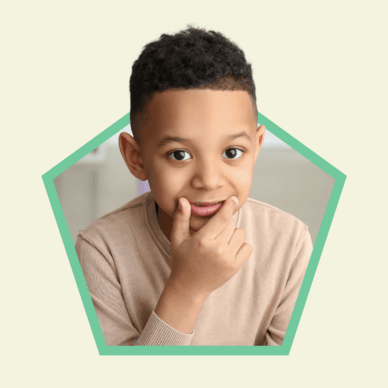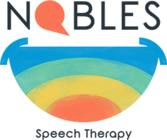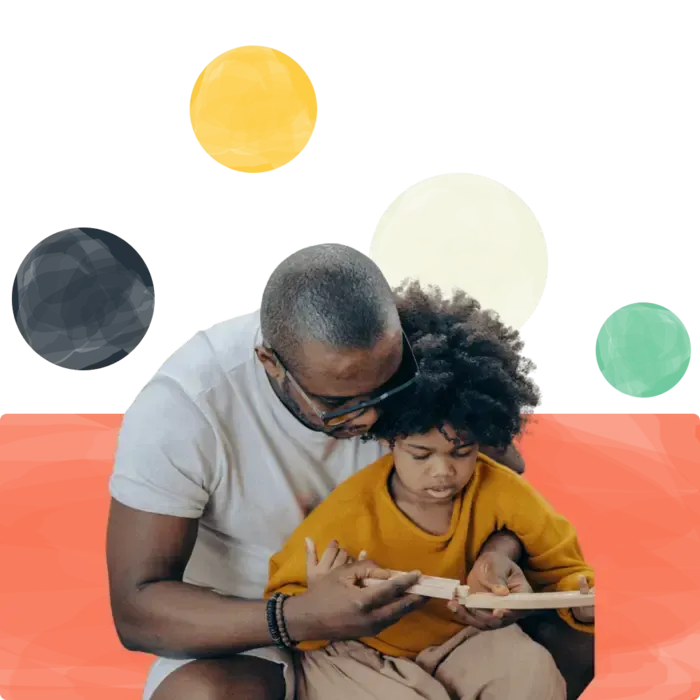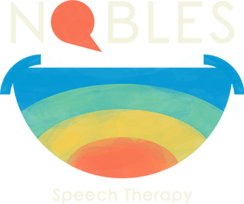We accept CareFirst BlueCross BlueShield, United Health Care, Wellpoint, Maryland Physician Care Insurance, and Kaiser Permanente.
Speech Therapy For Delayed Speech: Delays Don’t Have to Last a Lifetime.
Serving clients in Prince George's County, MD, Montgomery County, MD, Howard County, MD, Anne Arundel County, MD, Baltimore, MD and more.
Speech Therapy for Ages 1-18
Share this page:
Speaking (expressive language) is the main form of communication, and your child is expected to start saying one to two words by their first birthday. You may worry if your toddler hasn't said their first words or used gestures by then. This may indicate a speech delay.
There's no need to panic. As a
speech pathologist for toddlers,
we can help your child reach their
speech and language milestones. We'll use different
therapy techniques
and strategies to help them achieve their best language potential.
Speech Developmental Milestones in Toddlers
Speech delay or delayed language development is when your toddler hasn't met the typical speech and language milestones within their first three years. Your child should start saying words like "mama" or "dada" by 7-12 months, put two words together by age 2, and speak in short sentences by age 3. Difficulty meeting the milestones can happen because of physical and developmental issues such as oral-motor problems, hearing loss,
autism spectrum disorder, intellectual disability, or selective mutism.


Speech Delay Hinders Communication and Learning
Consistently exposing your child to verbal and non-verbal speech and language from birth helps them naturally develop the ability to speak. Language deprivation makes it difficult for them to use words, sounds, and gestures to express themselves or understand others (receptive language), as expected for their age.
Increased difficulty with reading, writing, learning, and socializing is also commonly associated with speech and language delays.
Delayed Speech is Common in Children
One in five children will start speaking or using words later than other children their age. In addition to developmental speech and language delay, your child may be diagnosed with expressive language disorder or receptive language disorder. It's normal to worry about how these setbacks will affect your child's academic achievements and social interactions. Remember that every child develops at their own pace.


Speech Therapy for Delayed Speech
Early intervention, such as
expressive speech delay therapy, is intended to build your child's expressive language skills. These include using words, gestures, or sounds to communicate their thoughts and feelings in ways others can understand. They'll learn to use vocabulary words in the proper context and order to form sentences.
Therapy
helps improve sound production, speech clarity, grammar, and fluency. With
receptive language therapy, your child can also develop skills such as listening, comprehension, and following directions.
Treatment in a Non-Judgmental Environment
Parents like you chose us because of our reputation and because we provide developmental delay speech therapy in a compassionate setting using effective strategies. We will expose your toddler to fun, creative techniques that have proven to improve expressive and receptive language abilities.


Transform Your Child's Life
Speech therapy helps your child effectively express themselves, grow academically, and build confidence for a more successful life. Schedule a consultation today.
Get Started Today!
The initial consultation is confidential and there is no obligation!
Share this page:
How Speech Delay Therapy Works
Step 1. Schedule Initial Consultation
We'll have a brief call to discuss your concerns about your child's communications skills, developmental milestones, red flags, and other areas of assessment.
Step 2. Assessment
We evaluate your child to industry-standard speech and language development benchmarks. Based on the results, we create a step-by-step treatment plan built around your child's needs.
Step 3. Treatment
We implement the treatment plan in series of fun, 30-minute one-on-one in-person or virtual sessions with your child. You'll receive updates after each session with supplemental materials for practice and reinforcement.
Step 4. Results
You'll experience the joy of watching your child's confidence, interpersonal interactions, and communication skills transform as they master the building blocks set out in their treatment plan.
Get Started Today!
The initial consultation is confidential and there is no obligation!
Share this page:
Frequently Asked Questions
Can Delayed Speech Be Corrected?
It depends on if your child is diagnosed with primary or secondary speech and language delay. Primary speech and language delays include expressive language disorder, receptive language disorder, and developmental speech and language delay. Secondary types relate to physical, psychological, or cognitive developmental problems. A personalized speech therapy program can improve your child's expressive (speaking) and receptive (understanding) language skills.
Can You Outgrow Speech Delay?
There's a chance your child may grow out of their speech delay. A study shows that 74% of toddlers between 20 and 34 months who missed their early speech and language milestones catch up to peers when they enter kindergarten. The same study finds some late talkers may continue to have difficulties with language and literacy skills, especially in grammar. Your child may more likely experience ongoing speech difficulties if they're diagnosed with a spoken language disorder, intellectual challenges, developmental challenges, or autism spectrum disorder.
How Can I Encourage My Toddler to Speak?
You can promote speech and language development by speaking to, reading to, and playing daily with your child during the infancy and toddler stages. Try encouraging your child to imitate sounds and gestures and use picture books to help them name letters, colors, or objects. To help your toddler develop proper vocabulary, avoid "caregiver language," also known as "baby talk." Common examples include using modified words such as "doggie" instead of "dog" and "footie" instead of "foot."
Related Topics:




